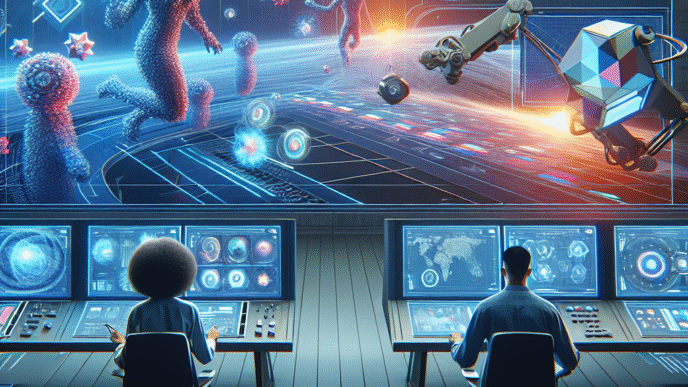The Rise of AI-Generated Content
AI-generated content has become a game-changer across industries, from journalism to marketing, automating everything from product descriptions to entire blog posts. With platforms like ChatGPT and Jasper AI rapidly evolving, businesses are leveraging AI to scale content production like never before. But is AI content truly a boon? How do search engines and users perceive it? This article explores the pros and cons of AI-generated content and its growing impact on the digital ecosystem.
How Search Engines View AI-Generated Content
1. Google’s Stance on AI-Content
Major search engines like Google maintain a cautious yet open stance toward AI content. While not inherently banned, Google’s focus is on “quality content” that adds value to users. According to their guidelines:
• AI-generated content is acceptable if it’s useful, original, and created for users rather than ranking manipulation.
• Thin or low-quality AI content (designed solely for SEO) may trigger penalties, impacting rankings negatively.
2. Impact on SEO Performance
• Studies indicate that AI content can lead to a 30-40% increase in efficiency for marketers, reducing time spent on writing repetitive content like FAQs and meta descriptions.
• However, AI lacks the nuance of human creativity, which may reduce engagement metrics such as time-on-page and click-through rates (CTR), which are crucial for SEO rankings.
How Users React to AI-Generated Content
1. Trust Issues and Skepticism
• 52% of users admit they are skeptical about AI-generated content, with concerns about accuracy and bias being the primary reason.
• Consumers tend to trust content that feels authentic and human, especially in sensitive areas like health, finance, and news reporting.
2. Enhanced User Experience with AI Personalization
• On the other hand, AI personalization—like product recommendations and dynamic blog summaries—has improved user satisfaction. 76% of users report a positive experience when content feels tailored to their needs, even if it’s AI-driven.
Pros of AI-Generated Content
1. Efficiency and Cost-Effectiveness
• AI content tools can produce large-scale content in minutes, reducing the time and cost for businesses.
• E-commerce platforms benefit by automating product descriptions, FAQs, and promotional emails.
2. Consistency in Style and Tone
• AI ensures consistent voice across platforms, useful for large companies with multiple communication channels.
• News agencies use AI to generate breaking news alerts, maintaining uniformity under tight deadlines.
3. Data-Driven Insights
• AI can analyze user behavior and generate content based on trends and data, leading to higher engagement.
Cons of AI-Generated Content
1. Lack of Creativity and Emotion
• AI struggles with original thought and storytelling. It cannot replicate the emotional depth that human writers bring, limiting its effectiveness in creative content.
2. Plagiarism and Ethical Concerns
• There’s a risk of unintentional plagiarism, where AI tools generate content too similar to existing texts.
• Ethical concerns arise when companies use AI without transparency, misleading users about the source of information.
3. Search Engine Penalties for Low-Quality Content
• AI-generated content may trigger algorithm penalties if it’s found to be redundant, shallow, or spammy.
4. Legal and Copyright Issues
• The legality of AI content remains unclear, especially when it comes to copyright ownership.
• Using copyrighted material as training data for AI without permission could lead to legal disputes.
Statistics and Trends in AI-Generated Content
• 85% of marketers believe that AI tools will become a mainstream part of content strategies by 2025.
• Research shows that AI-generated product descriptions can reduce bounce rates by 20% in e-commerce stores.
• However, 38% of writers express concern that AI may replace some of their jobs, especially for repetitive tasks like SEO writing.
Conclusion: Striking the Right Balance
AI-generated content offers significant advantages in terms of speed, scalability, and efficiency. For routine tasks, it’s a valuable asset that businesses can leverage to improve productivity. However, the key lies in balancing AI with human creativity. High-quality, engaging content still requires the nuance, empathy, and originality that only humans can bring.
From a search engine perspective, AI content is acceptable as long as it serves the user, offering genuine value. For businesses, transparency in AI usage and a hybrid approach—combining human input with AI capabilities—may offer the best results.
In the end, AI is a tool, not a replacement. The future of content lies in harnessing AI’s strengths while leaving space for human ingenuity to shine.









